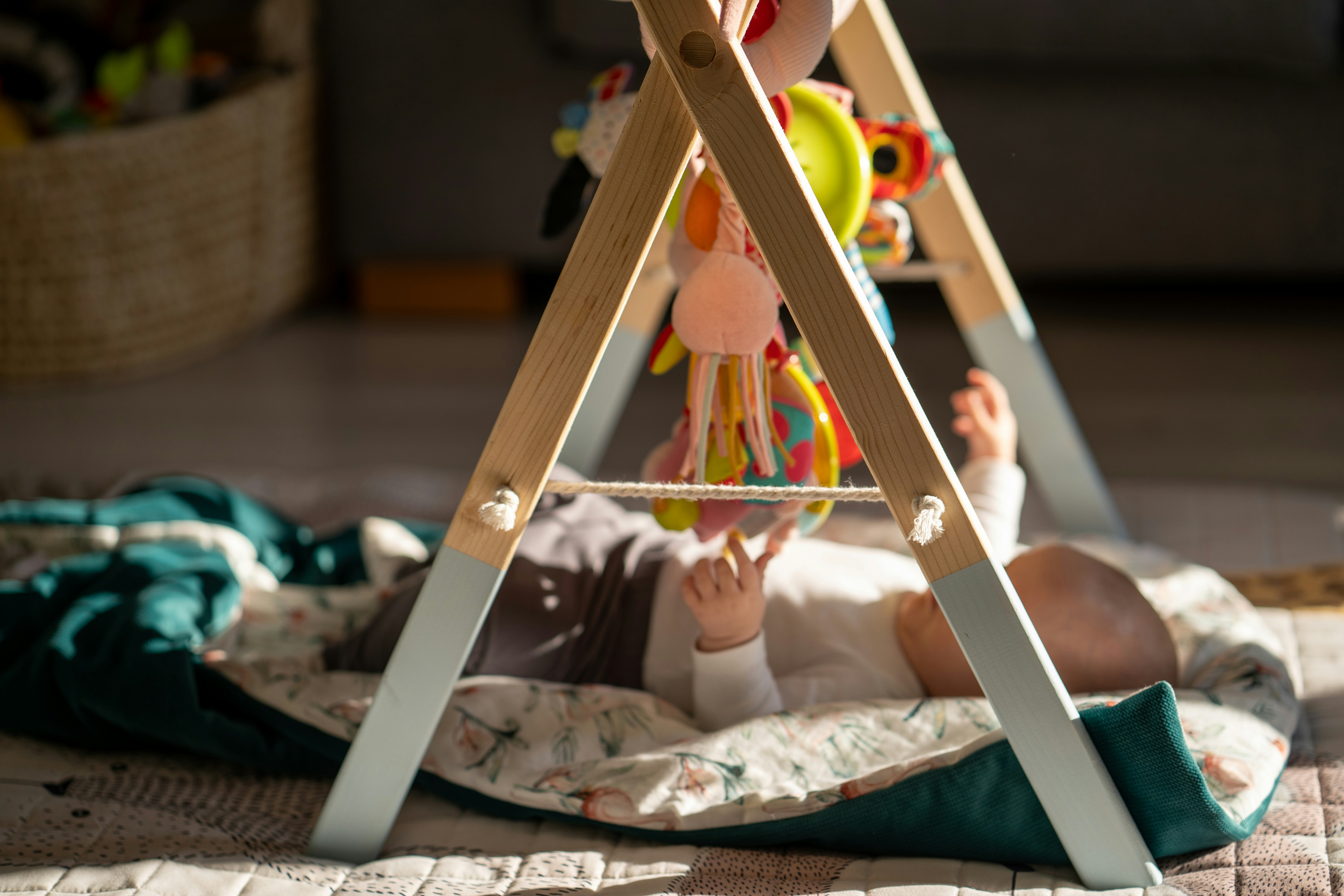New sample Bottle Boxes have launched! Purchase yours now!
First Trimester: Symptoms, Fetal Development & Tips for Expectant Mums

When you fall pregnant, you find yourself in the first trimester, something you’ve probably never heard of before.
We’ve put together this guide for the first trimester to help you understand what is happening during this time.
How early is the first trimester of pregnancy?
The first trimester begins on the first day of your last period. It lasts until the end of week 12 of your pregnancy, which is around 3 months long.
During these 12 weeks, a lot happens to you and your baby, even though you may not realise it.
Defined as early pregnancy, the first few months of your pregnancy are when your baby changes from a fertilised ovum to a fetus of about 6cm in length at 12 weeks. Typically a 12-week-old foetus is about the size of a plum.
During this time, a baby’s heart begins to beat, and vital organs such as the brain, stomach and intestines start to develop. The baby also grows 'buds', which develop into arms and legs as he or she grows.
Why is it called a trimester?
Each pregnancy lasts for about 40 weeks. In months, this means a woman will be pregnant for around 9 months.
The 40 weeks are broken down into three broad categories to categorise stages of how pregnancy develops: early, middle and late pregnancy.
The first trimester is considered to be the first early stage of pregnancy.
If you wanted to break it down, each trimester would last about 3 months, but it is not an exact science.
What happens in the first trimester?
During the first 12 weeks of pregnancy, a lot happens.
You’ll do your first pregnancy test and probably try to keep it a secret.
Many pregnant women experience morning sickness, which can be difficult to handle.
Early pregnancy can be a point when a mum-to-be starts to feel anxious and worried about what could happen. The first trimester is when the risk of miscarriage is at its highest, so you’re likely to be counting down to the first scan at the 12-week mark for the entire three months.
Many pregnant women, however, may not even feel ‘pregnant’, which can be confusing.
What should I avoid during my first trimester?
During the whole pregnancy, eating a balanced diet can help with energy levels and nutrients, controlling excessive weight gain and general well-being. Aim to eat a good variety of foods, such as fruit and vegetable, meat, cheese, potatoes, beans and pulses.
Mums-to-be should avoid cigarettes and alcohol and limit caffeine to a maximum of 200mg a day. Remember, chocolate, tea, coffee, and fizzy drinks contribute to caffeine intake, so check the labels first and switch to decaf alternatives.
Read the Tommy’s website to find out more dos and don’ts for pregnancy.
Can I exercise during the first trimester?
A pregnant woman can exercise throughout the whole pregnancy if she feels comfortable.
The more active and fit a woman keeps during pregnancy, the easier it will be to handle changing shape and weight gain, and the stronger she will be for labour and afterwards.
If you are used to regular physical activity, there is no reason why you can’t continue for as long as possible. Avoid team and contact sports, but you can carry on with running, yoga, dancing, swimming, walking and even gym workouts.
Just remember to check with your midwife if you have any concerns.
Should I take supplements during the first trimester?
Health professionals recommend folic acid to significantly reduce a baby’s risk of neural tube defects, such as spina bifida.
Women can take folic acid when trying to conceive but definitely if they get a positive pregnancy test. Take 400 micrograms of folic acid as a supplement as soon as possible until the end of the first trimester.
You may wish to take supplements specifically formulated for pregnancy and breastfeeding, such as Pregnacare, to aid overall nutrition and development.
What does your first trimester feel like?
We’ve broken the first trimester down into key milestones and asked a few mums to share their experiences of early pregnancy.
1 week pregnant
 This starts on the first day of your last period. In an average 28-day cycle, ovulation typically occurs about 14 days before the start of the next menstrual period. Ovulation is the window for falling pregnant. During this time, a baby can be conceived. About 5 to 6 days after ovulation, the fertilised egg burrows into the womb's lining, which is the implantation stage.
This starts on the first day of your last period. In an average 28-day cycle, ovulation typically occurs about 14 days before the start of the next menstrual period. Ovulation is the window for falling pregnant. During this time, a baby can be conceived. About 5 to 6 days after ovulation, the fertilised egg burrows into the womb's lining, which is the implantation stage.
It’s unlikely that you’ll feel any different, but if you try to conceive, health professionals recommend taking folic acid as a supplement.
Week 4-5 of pregnancy

Around this time, you may miss a period and start to 'feel different’. There is no exact science to explain it other than breast tenderness or an ‘inkling’.
If you think you are pregnant, do a pregnancy test. Digital pregnancy tests can give you an idea of how many weeks pregnant you are to help you work out a due date.
At this point, research supplements, avoid smoking and alcohol, reduce caffeine, and avoid risky foods.
Around 8 weeks pregnant
 If you still haven’t had a period or have had further positive pregnancy tests, it’s time to contact your doctor. If you have questions, ask to speak to your GP. Otherwise, request a ‘booking in’ appointment with a midwife.
If you still haven’t had a period or have had further positive pregnancy tests, it’s time to contact your doctor. If you have questions, ask to speak to your GP. Otherwise, request a ‘booking in’ appointment with a midwife.
You may experience fatigue, be more emotional, have breast tenderness, have morning sickness, and need to go to the toilet more often. Remember that every pregnancy is unique, so you could have all pregnancy symptoms or none. They are not a sign of a healthy or unhealthy pregnancy.
If you are concerned, you may find reassurance in having an early private scan.
Week 9 of pregnancy
 Your breasts may start to feel fuller, so it could be time to consider a more supportive bra.
Your breasts may start to feel fuller, so it could be time to consider a more supportive bra.
With your 12-week scan coming up, it’s good to read up on routine screening tests for other complications.
For example, there may be an increased risk of Down's, Edwards', and Patau's syndromes. Also, to protect yourself, you’ll probably be offered the flu jab and sent information to read regarding other vaccinations to protect mum and baby.
12 weeks pregnant
 This is typically the week you’ll have your 12-week scan. It’s finally time to see your baby!
This is typically the week you’ll have your 12-week scan. It’s finally time to see your baby!
You might want to begin to tell people about the pregnancy once the first trimester is over. So it is worth also finding out about your legal rights. maternity leave, and any other entitlements.
If you want the routine screening tests, you must ask between weeks 10-14.
What the first trimester feels like
Pregnancy is a very personal time. What one mum will feel will be different to another.
You may have sickness, aches and be super tired. On the other hand, you might be full of energy and exercising right up to the end!
Here’s what one mum told us…
"I spent the first 3 months of my first pregnancy doubting that I was really having a baby. Apart from feeling more tired and having sore boobs, I didn't really feel any different. Cravings were a myth for me; luckily, I didn't experience morning sickness during this pregnancy. I kept it a secret from all of my friends and family because I was so anxious and didn't want to get my hopes up, so I didn't really believe it until I had the 12-week scan!" - Rhian, mum of 2
So there you have it; the first 3 months of pregnancy is a very busy and important time for your baby's development.

Join our newsletter!
Subscribe to our newsletter for exclusive access to kids' wishlist tips, tricks, and the latest deals delivered straight to your inbox.
Follow us on Instagram for more inspiration!
@littlewishlist_
Create your wishlist!
Ready to dive into baby gift bliss? Start your wishlist adventure!






